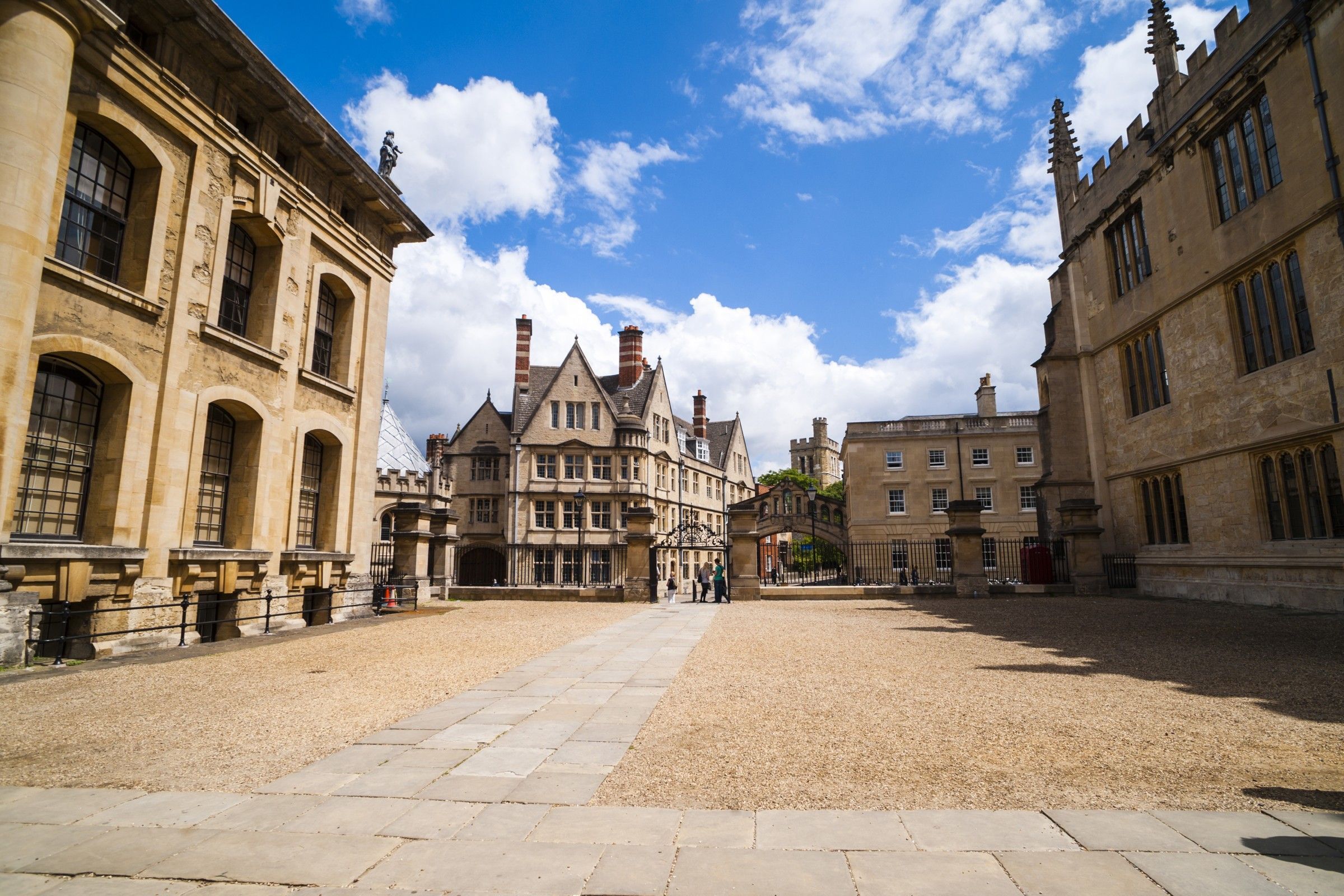Oxford vs Cambridge: Ultimate Comparison Guide

The University of Oxford and the University of Cambridge, collectively known as Oxbridge, are two of the oldest and most prestigious universities in the world. Renowned for their academic excellence, world-leading research, and rich traditions, these historic cities attract thousands of international students every year. If you’re wondering “Should I go to Oxford or Cambridge?” this comprehensive guide will help you navigate the key differences, similarities, and unique features of both universities to make an informed decision.
While Oxford and Cambridge share many similarities, there are also important differences that prospective students should consider.
The Oldest Universities and Their Historic Rivalry#
Oxford, founded in 1096, and Cambridge, established in 1209 by scholars fleeing unrest in Oxford, are the UK’s oldest universities. Their rivalry is one of the most famous academic rivalries globally, symbolised by events like the annual Oxford vs Cambridge Boat Race on the River Thames. This competition embodies the spirit of excellence and mutual respect that drives both institutions to maintain their world-class reputations.
One important point for prospective students is that you can only apply to either Oxford or Cambridge in the same year, making your choice crucial for your university life and future career.
University Rankings and Global Reputation#
Both Oxford and Cambridge consistently rank among the top universities globally. According to the 2024 Times Higher Education World University Rankings, Oxford holds 1st place worldwide, while Cambridge ranks 5th. In teaching quality, Oxford ranks 5th and Cambridge 7th, with both universities firmly established in research excellence.
The QS World University Rankings place Cambridge 2nd and Oxford 3rd in 2024. These rankings reflect the strong Oxbridge brand, recognised internationally by academics, employers, and students alike. However, when deciding between the two, it’s helpful to consider rankings by subject and specific academic departments. Oxford is ranked first in the world for English Language and Literature, and both Oxford and Cambridge offer highly regarded English courses with distinct curricula and thematic focus areas.
There are key differences in their general reputation too, with Oxford considered to be bigger and livelier than Cambridge. Both universities are located around 60 miles away from London, and situated in beautiful, historic settings, however the atmosphere in Cambridge is often described as student-dominated due to its smaller sized and high student population ratio.
Traditions and Culture at Oxford and Cambridge#
Both Oxford and Cambridge universities boast rich traditions and vibrant cultures that have evolved over centuries, contributing significantly to their unique identities and student experiences.
Oxford is often seen as the more traditional of the two, maintaining numerous historic customs. Students at Oxford participate in ceremonies such as Matriculation and May Morning, where the university choir sings from the top of Magdalen College Tower at dawn. The wearing of sub fusc—a formal academic dress including gowns and black ties or ribbons—is compulsory for exams and formal occasions, reinforcing a sense of academic solemnity and continuity. Oxford also celebrates Ascension Day with unique rituals and holds formal dinners known as Formal Halls, where students dine in their college halls wearing academic gowns.
Cambridge shares many traditions with Oxford but tends to have a slightly more relaxed approach. Cambridge students also wear sub fusc for formal events, though it is not required for exams. The university maintains its own police force, known as the University Constabulary or "bulldogs," a tradition dating back to the 19th century. Cambridge is famous for its May Balls—lavish, all-night parties held by colleges at the end of the academic year. Punting on the River Cam is another cultural hallmark, offering both students and visitors a quintessential Cambridge experience.
Both universities have a strong collegiate system that fosters close-knit communities where traditions are upheld within each college, contributing to a rich tapestry of customs, events, and student societies. These traditions, combined with a lively student culture of clubs, societies, and sporting events such as the iconic Oxford vs Cambridge Boat Race, create a vibrant university life that balances respect for history with modern student interests.
Whether you choose Oxford or Cambridge, engaging with these traditions is an integral part of the Oxbridge experience, offering a connection to the past and a shared identity among generations of students.

Strengths by Subject and Academic Departments#
Oxford and Cambridge each have distinctive academic strengths. The QS World University Rankings by Subject show Oxford leading in many science courses and STEM fields, while Cambridge excels in arts courses and humanities. For example, Cambridge offers a broad Natural Sciences programme that covers physical sciences and life sciences, allowing students to explore multiple disciplines before specialising. Oxford's approach, on the other hand, expects students to choose a specific scientific discipline from the start.
When comparing two courses such as English or Medicine, Cambridge often provides a more flexible curriculum in the early years, while Oxford's courses may have a more traditional and specialised structure from the outset.
Both universities have highly regarded academic departments with world-class faculty and resources, but course content and teaching styles can vary significantly between the two. Certain courses, such as sciences and arts at Cambridge, have specific entry requirements and subject prerequisites that may differ between colleges.
The typical Oxford range for offer grades is often A*AA to AAA, depending on the course, and this can be compared to Cambridge's standard offers, which may be similar or slightly higher for some subjects.
In terms of course progression, some courses at both universities have key milestones or assessments in the third year, and the structure or timing of these can differ between Oxford and Cambridge.
Courses and Teaching Styles: Tutorials vs Supervisions#
One of the defining features of Oxbridge is the collegiate system, where students belong to individual colleges as well as academic departments. This structure fosters a close-knit community and personalised learning experience.
Both Oxford and Cambridge emphasise small-group teaching: Oxford students participate in tutorials, while Cambridge students attend supervisions. These sessions involve one-on-one or small group discussions with admissions tutors and academic staff, focusing on critical thinking, in-depth analysis, and personalised feedback.
Notably, Oxford offers fine art and philosophy, politics & economics (PPE) courses, while Cambridge provides degrees in architecture and veterinary medicine. The two medicine courses at these universities differ slightly, with Cambridge offering full cadaveric dissection, which may influence your choice. In some cases, one university may offer a unique program or teaching style not found at the other, so it's important to consider which university aligns best with your academic interests.
Admissions Process: Entry Requirements, Tests, and Interviews#
Applying to Oxford or Cambridge is highly competitive. Both universities have some of the highest entry requirements in the UK, typically ranging from AAA to A*AA at A Level, or 38 to 42 points in the International Baccalaureate.
Your UCAS application must include a personal statement emphasising your academic interests and achievements. Cambridge applicants also complete the Cambridge application (My Cambridge Application) and may need to submit extra forms, while Oxford generally requires fewer additional documents.
Most courses require admissions tests before interview invitations. Oxford interviews fewer applicants (20-40%), whereas Cambridge interviews a larger proportion (around 70-80%). These interviews with admissions tutors assess your ability to think critically and apply knowledge beyond standard exam material.

Student Accommodation: Oxford vs Cambridge#
Choosing between Oxford and Cambridge isn’t just about courses or colleges — your accommodation experience plays a big part too. We analysed hundreds of verified student reviews from both cities to see what current students really think about where they live.
Oxford: Great People, Central Locations, Mixed Facilities
Students in Oxford rate their accommodation highly overall, especially praising management, location, and community feel. Reviews highlight helpful staff and responsive maintenance teams creating a strong sense of belonging.
What Oxford students love:
“The staff are amazing and go above and beyond to create an exceptional environment in every respect.”
“Excellent staff, especially Sharon at the front desk… wouldn’t wish to stay anywhere else in Oxford.”
“One of the new accommodations in Oxford — well maintained, staff response is quick and reliable.”
Oxford’s strengths include:
Management & Services: Friendly, caring staff handle issues quickly.
Location & Accessibility: Most accommodation is close to university buildings, city amenities, and transport links.
Student Well-being & Experience: A community atmosphere with modern social and study spaces.
However, older college buildings, though full of character, can be “historic but tired,” and some students mention heating issues or inconsistent cleaning in older halls. Overall, Oxford accommodation is well-run and central, but experiences vary by location.
Cambridge: Beautiful, Efficient, but Pricey
Cambridge students also share positive reviews, especially for location, staff, and community life. Many describe well-maintained rooms, prompt repairs, and friendly management.
Student feedback includes:
“The location is great! Staff are very helpful. The interior of the rooms is stylish and beautiful.”
“I’ve lived at The Railyard all the way through university… any problems I have are seen to promptly.”
“Great public facilities, great location — it’s been really enjoyable staying here.”
Cambridge’s highlights:
Location & Accessibility: Compact city layout makes walking or cycling everywhere easy.
Management & Leadership: Proactive staff who solve issues fast.
Student Well-being: Calm, close-knit environment that feels like home.
The main drawback is value for money. Many students find rents high for smaller rooms or older facilities: “Great place to live, though it could be a little bit cheaper.”
Oxford vs Cambridge Accommodation: The Verdict#
| Category | Oxford | Cambridge |
|---|---|---|
| Management & Staff | ⭐⭐⭐⭐⭐ Supportive, caring staff | ⭐⭐⭐⭐ Well-organised, responsive teams |
| Location & Accessibility | ⭐⭐⭐⭐ Easy access to city and campus | ⭐⭐⭐⭐⭐ Everything within walking or cycling distance |
| Facilities & Maintenance | ⭐⭐⭐ Some older or inconsistent buildings | ⭐⭐⭐⭐ Generally modern, well-kept |
| Value for Money | ⭐⭐⭐ Moderate satisfaction | ⭐⭐ Students feel rents are high |
| Student Experience | ⭐⭐⭐⭐ Friendly and community-driven | ⭐⭐⭐⭐ Calm, comfortable, and scenic |
Both cities offer some of the best accommodation experiences in the UK but excel in different ways: choose Oxford for friendly staff, central living, and a vibrant student community; choose Cambridge for modern management, beautiful surroundings, and efficient service, accepting a higher cost.
Financial Considerations: Tuition Fees, Living Costs, and Scholarships#
Tuition fees for UK undergraduates at both universities are capped at £9,250 per year. International students face higher fees, ranging approximately from £24,507 to £44,240 depending on the course and university.
Living costs in Oxford and Cambridge are relatively high compared to other UK cities. Cambridge is generally considered slightly cheaper, with an estimated annual living cost of around £11,000, while Oxford’s costs can be higher due to accommodation and lifestyle.
Both universities offer extensive financial support, including scholarships and bursaries for UK and international students. The Oxbridge brand also opens doors for future scholarships and funding opportunities.
Student Support: Welfare, Wellbeing, and Accessibility#
Both Oxford University and Cambridge University are deeply committed to supporting their students’ welfare, wellbeing, and accessibility throughout their academic journey. At the heart of this support is the collegiate system, which ensures that every student is part of a close-knit community within their chosen college. Oxford colleges and Cambridge colleges each offer dedicated welfare teams, including tutors, peer supporters, and pastoral staff, who are available to help with both academic and personal challenges.
Oxford students and those at Cambridge can access a wide range of services, from confidential counselling and mental health support to disability resources that ensure all students can fully participate in university life. Both universities also provide financial assistance for those who need it, as well as academic support such as study skills workshops and mentoring.
International students are especially well cared for, with tailored language support, orientation programs, and cultural adaptation resources to help them settle into life in the UK. The sense of belonging fostered by the collegiate system means that students rarely feel isolated, and there is always someone to turn to—whether it’s a fellow student, a college advisor, or university staff. This supportive environment is a key reason why so many students thrive at both Oxford and Cambridge.
Career Services: Internships, Guidance, and Employability#
Career services at Oxford and Cambridge are among the best in the world, designed to help students make the most of their undergraduate degree and prepare for life after university. Both universities offer a wealth of resources, including one-to-one career guidance, CV workshops, and interview preparation sessions. Students can take advantage of exclusive internship opportunities, both in the UK and internationally, thanks to the universities’ extensive industry connections.
The strong alumni networks at both Oxford and Cambridge open doors to valuable networking events and mentoring schemes, giving Oxbridge students a real advantage in the job market. Employers around the globe actively seek out graduates from these universities, recognising the rigorous academic training and transferable skills they develop.
Personalised support is a hallmark of the career services teams at both universities. Whether students are interested in academia, business, science, the arts, or public service, they receive tailored advice to help them identify and achieve their career goals. This focus on employability and professional development ensures that Oxford and Cambridge graduates are well-prepared for successful, fulfilling careers.

Academic Calendar: Terms, Vacations, and Unique Rhythms#
The academic calendar at Oxford and Cambridge is unlike that of most other universities, offering a distinctive rhythm that shapes both study and student life. Both universities operate on a system of three short, intensive terms—Michaelmas, Hilary, and Trinity at Oxford; Michaelmas, Lent, and Easter at Cambridge. Each term typically lasts just eight weeks, creating a fast-paced and immersive academic environment.
This unique structure means that students choose to focus intensely on their studies during term time, followed by longer vacations that provide opportunities for rest, travel, internships, or independent research. The balance between concentrated academic effort and extended breaks is a hallmark of university life at both Oxford and Cambridge, allowing students to recharge and pursue extracurricular interests.
The QS World University rankings consistently reflect the high quality of education and vibrant student experience at both institutions. The academic calendar, steeped in history and tradition, is just one of the many reasons why students choose Oxford and Cambridge. Alongside rigorous study, students enjoy a rich array of cultural events, sports, and societies, making university life at these historic universities both challenging and rewarding.
Student Life: Facilities and Extracurricular Activities#
Oxford and Cambridge provide excellent facilities, from historic libraries like Oxford’s Bodleian Library and Cambridge University Library to modern research labs and sports complexes. Student life is vibrant, with numerous clubs, societies, and sports teams—including rowing clubs competing in the iconic boat race. When you visit Oxford, you can enjoy a range of attractions and activities, such as exploring historic sites, attending cultural events like jazz and theatre nights, and experiencing the vibrant nightlife and shopping scene.
City Life and Surroundings: Historic Cities with Unique Charm#
Oxford is a larger, livelier city with a bustling atmosphere, historic buildings like Blenheim Palace, and cultural landmarks such as the Oxford Castle. Stratford-upon-Avon is located nearby, making it a popular destination for visitors traveling to or from Oxford. Cambridge is generally considered more picturesque and compact, famed for its beautiful colleges, the River Cam, and punting activities.
Both cities are bicycle-friendly and within an hour’s train journey from London, offering easy access to the capital’s cultural and professional opportunities.
Alumni and Global Impact#
Cambridge has produced notable figures such as Charles Darwin and Stephen Hawking, particularly in life sciences and physical sciences. Oxford counts numerous UK prime ministers and influential figures among its alumni, especially in politics, literature, and the arts.
Both universities maintain a strong global impact through cutting-edge research and high graduate employability rates, making an Oxbridge degree a valuable asset worldwide. Other prestigious UK universities, such as St Andrews, also have a significant reputation and unique traditions, but Oxford and Cambridge remain the most globally recognised.
Final Degree Classification and Academic Progression#
At both universities, students are assessed through a combination of coursework, tutorials/supervisions, and final year exams. The final degree classification depends on performance in these assessments, with some courses offering the option to continue to postgraduate study.
Should You Choose Oxford or Cambridge?
When deciding between Oxford and Cambridge, consider:
- Your preferred course and whether it is offered at one or both universities
- The teaching style and academic department strengths
- The college environment and city lifestyle you prefer
- Financial considerations including scholarships and living costs
- Your personal preference after visiting the universities and experiencing university life firsthand
When making your decision, be sure to weigh the unique features of the two universities, as each offers distinct advantages in terms of rankings, course offerings, campus atmosphere, and traditions.
Both universities offer exceptional education and opportunities, so there is no wrong choice. Whether you choose Oxford or Cambridge, you will join a community of motivated Oxbridge students and benefit from a world-class education.
Whichever university you decide to apply to, make sure to prepare thoroughly for the admissions process, including your personal statement, admissions tests, and interviews. Visiting Oxford and Cambridge and speaking with current students can also provide invaluable insight to help you make the best choice.
Your Oxbridge journey awaits—choose wisely and get ready for an unforgettable university experience!





